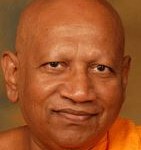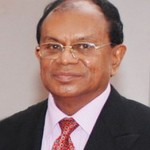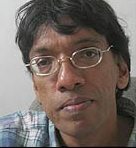–

Ven. Prof. Bellanwila Wimalarathana thero
There is perhaps total consensus that religion is one of the major factors that exerts influences on the people: nurturing, moulding, and contributing to the development of their character. But religion by itself is not able to exert this influence. This happens depending on how it is communicated to the people. This religious communication is done by the religious men. Therefore, in discussing the issue of reconciliation, which involves both inter-religion and inter-religious harmony, the role of religious men has to be examined very carefully.
There are many religions in the world, and among them there are a number of world religions. I am not focusing my attention on all religions and all religious men, but on Buddhism and the Buddhist monks. This is mainly because I am a member of the community of Buddhist monks.
Buddhism is one of the world religions. It has influenced peoples of different nations and cultures throughout a very long period of over two and a half millenniums. From ancient times Buddhism has served as a reconciliatory force bringing together different factions divided on various grounds and issues: political, ethnic, social, economic, and so on. Sri Lanka itself bears evidence to this. It is with the introduction of Buddhism that the country became united and commenced its forward march to progress in all spheres of life. The world history shows similar histories in countries like Myanmar, Korea and Japan. This shows that Buddhism is a teaching that unites people. It is very necessary to understand this factor when communicating Buddhism.
There are certain factors that contribute to make Buddhism a unifying force. Basically one has to understand that Buddhism is for the ending conflict and for establishing peace. In Buddhist technical terminology these two objectives are explained as dukkha and its nirodha, which means cessation. Dukkha, usually translated into English as suffering, is in fact a term impregnated with different nuances of meaning. The term ‘Dukkha’ covers all human problems: pain, discontentment, dissatisfaction, dejection, conflict and so on. Hence, Buddhism can by simply explained as a teaching dealing with ‘human problems’. Though nonhumans, including animals, are not left out, the main focus is on the human being and his problems. This has to be born in mind when communicating the Buddhist teachings.
While Buddha claims that his teachings present an assured way of completely terminating and bringing about the cessation of all human problems, he explains how difficult it is to attain this state. This is the highest ideal; yet there are states below this ideal level which are harmonious, peaceful, and satisfying. While Buddha says that he presents an assured way to peace, he does not say that what he says is the only truth. He knows very well that if he said so, that will lead to conflicts and disputes. Such a claim would not be conducive to the peace, harmony, and well-being of the masses for which he urged his clergy of disciples to disseminate his teachings. Such a claim would be very divisive; leading to religious fundamentalism and even leading to destructive wars as evidenced by history.
The Buddha spoke about the separate identity of Buddhism. Yet he never attempted to impose Buddhist identity on other religions. Instead, he strove firmly to keep the masses in the track of religion without using discriminatory methods to veer them away from non-religion, especially pure materialism which denies all morals and ethics. In one of the very well-known discourses in the Majjhima-nikaya, namely, the Alagaddupama Sutta, he makes the following insightful observations:
“Some learn the teaching only for the sake of criticizing others and for winning debates, and they do not experience the good for the sake of which they learned the teaching. Those teachings, being wrongly grasped by them, conduce to their harm and suffering for a long time”.
To explain this wrong grasping of the religious teachings and consequent harm that befalls, he cites the simile of one who wrongly grasps a snake by the tail. When grasped in the wrong manner, the person who grasps it is bitten by the snake which causes his death. This is quite an effective simile to all religious men who wrongly grasp religious teachings, perhaps being inspired and urged by misconceived ideas.
Such grasping nullifies the purpose for which religions are preached. Religions are for unity, harmony peace, understanding, trust, and so on. It is mostly through wrong communication by over-enthusiastic, perhaps, well-meaning communicators of religious teachings that religions turn into destructive forces. The Buddha said in the already quoted discourses, that religion should be considered as a ‘raft’ that helps to tide over the numerous problems of life, or dukkha, as Buddhism puts it. One is admonished not to carry the religion on his head, or to load it on his shoulder, but to use it as a device to solve problems.
It is just blind and dogmatic clinging to religion that makes one veer towards religious fundamentalism, decrying all other religions, and communicating religious teachings in the wrong way, inciting the ‘faithful masses’ to all kinds of destructive and disruptive activities. This is happening all over the world.
Religious communicators have to perform their role with caution and insight, without being tempted and misled by personal considerations. Religion should not be made a political instrument nor should religious men become politicians or tools of politicians. It is true that it is very difficult to be above politics in the present political contexts. All have political views, mental inclination towards a particular political system, political views etc. But such views and inclinations should not be mixed up with religious teachings, especially with Buddhist teachings. The Buddha was never a politician, though he presented a political theory for the good of everyone to assure all the enjoyment of all main human rights and privileges.
Emperor Asoka of India adopted such a tolerant religious policy that was conducive to forge unity among all peoples of different faiths. He explicitly stated in his Edicts that one who disparages other religions is disparaging his own religion. Politicians should not entice religious men to serve their political needs. Such an attitude is very harmful in the long run. This makes the Buddhist monk’s role as communicator of the Buddha teaching a very tricky and a difficult task.
Religious men should realize that their task is to bring about unity among those who are divided. This role of the clergy, communicators of the teaching of the Buddha, has been very vibrantly described in a discourse called the Samannaphala Sutta of the Digha Nikaya. This description explains the proper way such bhikhus should use their speech and says that “he should be one to be relied on, dependable, not a deceiver of the world, …a reconciler of those who are disunited and one who encourages those who are united, one who is delighting the unity and concord, and speaking up for peace”. Such should be the role of a good religious teacher.
This very clearly shows how Buddhism serves reconciliation and how a monk should work for the reconciliation of the divided if they really wish to be the sons of the Buddha. When the Buddha sent out the first sixty missionaries to communicate his new founded teaching, he requested them to preach the teachings for the good, well-being, and happiness of all.
This, ‘happiness for the many’ does not mean the happiness of the majority. Those who wish to follow fundamentalism and also wish to work under particular political directions could interpret this admonition in this narrow sense. But, the Buddha has made it very clear that all our actions have to be for the good of oneself and for the good of others. This morality goes far beyond the ‘narrow’ political interpretation of democracy. Buddhism is a democratic teaching, but this democracy does not mean the imposition of the majority view on the minority.
There is no question that the Teaching of the Buddha, his Dhamma, should be for the good and benefit of all. Buddha has shown that this could be done by getting hold of the dhamma in the proper manner, not as a political slogan, not as a propagandist cry, but as a message of peace and harmony. The Buddha has intervened not as a political negotiator but as a spiritual teacher to avert war between clans. It is well known that when the two clans, the Sakyans and the Koliyans, arrayed themselves, fully armed, to wage war against each other over the issue of sharing water of the Rohini river, the Buddha intervened and explained the futility and dangers that follow war. His attempt was to drive sense into warring parties and reconcile, and advice them not to act in a partisan manner that would further ignite the issue.
The Dhamma communicators have a duty to protect the Dhamma. But the protection of Buddhism should not be extended to the imposition of Buddhist identity and sentiments on other religions and religious men. Desecrating Buddhism and showing violent disrepute to Buddhism has to be stopped, and the members of the Sangha have a duty to do so. But this has to be done not by using force, violent behavior, and engaging in disruptive activities, but in a Buddhist way; in a peaceful way. If Buddhist clergy takes the law into their hands, totally disregard natural justice, rule of law and such other basic principles, the whole society will gradually break down, plunging the whole country into darkness and into a miserable state. To protect Buddhism is to live according to Dhamma. Living according to Dhamma itself is an inbuilt kind of protection for those who follow the Dhamma.
Religion is not the only factor of conflict and disunity. There are many other factors. So, in a multi- religious, multi-ethnic society beset with such conflicting issues, all are stakeholders in this process of reconciliation.
It is not only the majority population that bears the responsibility of working for unity and harmony. All minorities are duty bound to cooperate and integrate themselves with the majority. And, of course, the majority merely on the ground of the majority, should not try to dominate or impose their will on the majority or deprive the minorities of their due. Extremism and fundamentalism should be shunned by all, including the minorities. The majority should behave in a way that will not make minorities feel that they are being oppressed and deprived of their legitimate dues. Similarly, the minorities should not make undue demands and use their minority positions as a ruse to gain extra mileage.
It is in this state of conflicts that religion and religious men of moderate thinking and views can effectively play their roles. While properly communicating the essence of the respective teachings to devotes, they should specially impress upon the politicians regarding the role they also should play as ‘reconcilers’. If politicians fail to play their role properly, but use religion and religious men to achieve their own ends, then the whole process of reconciliation is bound to fail. With this observation, I conclude.
Thank you very much for your patient hearing.
*Ven. Prof. Bellanwila Wimalarathana thero, Chancellor, Sri Jayewardenepura University. Speech delivered by Ven. Prof. Bellanwila Wimalarathana thero at the National Conference ‘the Role of Religion in Reconciliation’ on July 23, 2013.




